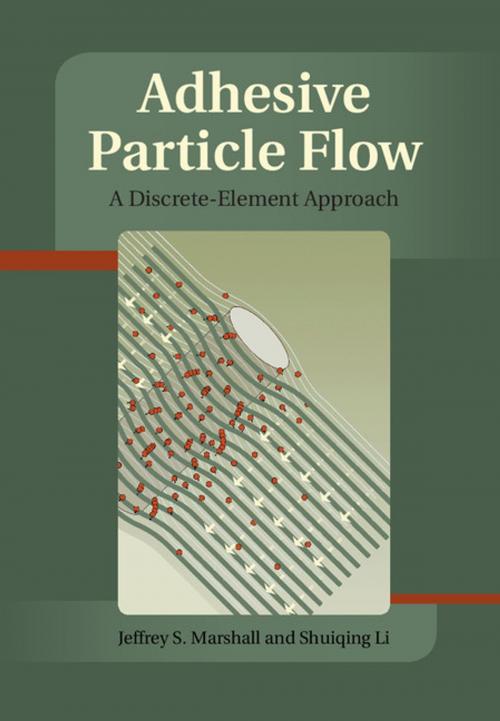Adhesive Particle Flow
A Discrete-Element Approach
Nonfiction, Science & Nature, Technology, Engineering, Mechanical, Science| Author: | Jeffery S. Marshall, Shuiqing Li | ISBN: | 9781139949224 |
| Publisher: | Cambridge University Press | Publication: | March 31, 2014 |
| Imprint: | Cambridge University Press | Language: | English |
| Author: | Jeffery S. Marshall, Shuiqing Li |
| ISBN: | 9781139949224 |
| Publisher: | Cambridge University Press |
| Publication: | March 31, 2014 |
| Imprint: | Cambridge University Press |
| Language: | English |
Offering a comprehensive treatment of adhesive particle flows, this book adopts a particle-level approach oriented toward directly simulating the various fluid, electric field, collision, and adhesion forces and torques acting on the particles, within the framework of a discrete-element model. It is ideal for professionals and graduate students working in engineering and atmospheric and condensed matter physics, materials science, environmental science, and other disciplines where particulate flows have a significant role. The presentation is applicable to a wide range of flow fields, including aerosols, colloids, fluidized beds, and granular flows. It describes both physical models of the various forces and torques on the particles as well as practical aspects necessary for efficient implementation of these models in a computational framework.
Offering a comprehensive treatment of adhesive particle flows, this book adopts a particle-level approach oriented toward directly simulating the various fluid, electric field, collision, and adhesion forces and torques acting on the particles, within the framework of a discrete-element model. It is ideal for professionals and graduate students working in engineering and atmospheric and condensed matter physics, materials science, environmental science, and other disciplines where particulate flows have a significant role. The presentation is applicable to a wide range of flow fields, including aerosols, colloids, fluidized beds, and granular flows. It describes both physical models of the various forces and torques on the particles as well as practical aspects necessary for efficient implementation of these models in a computational framework.















